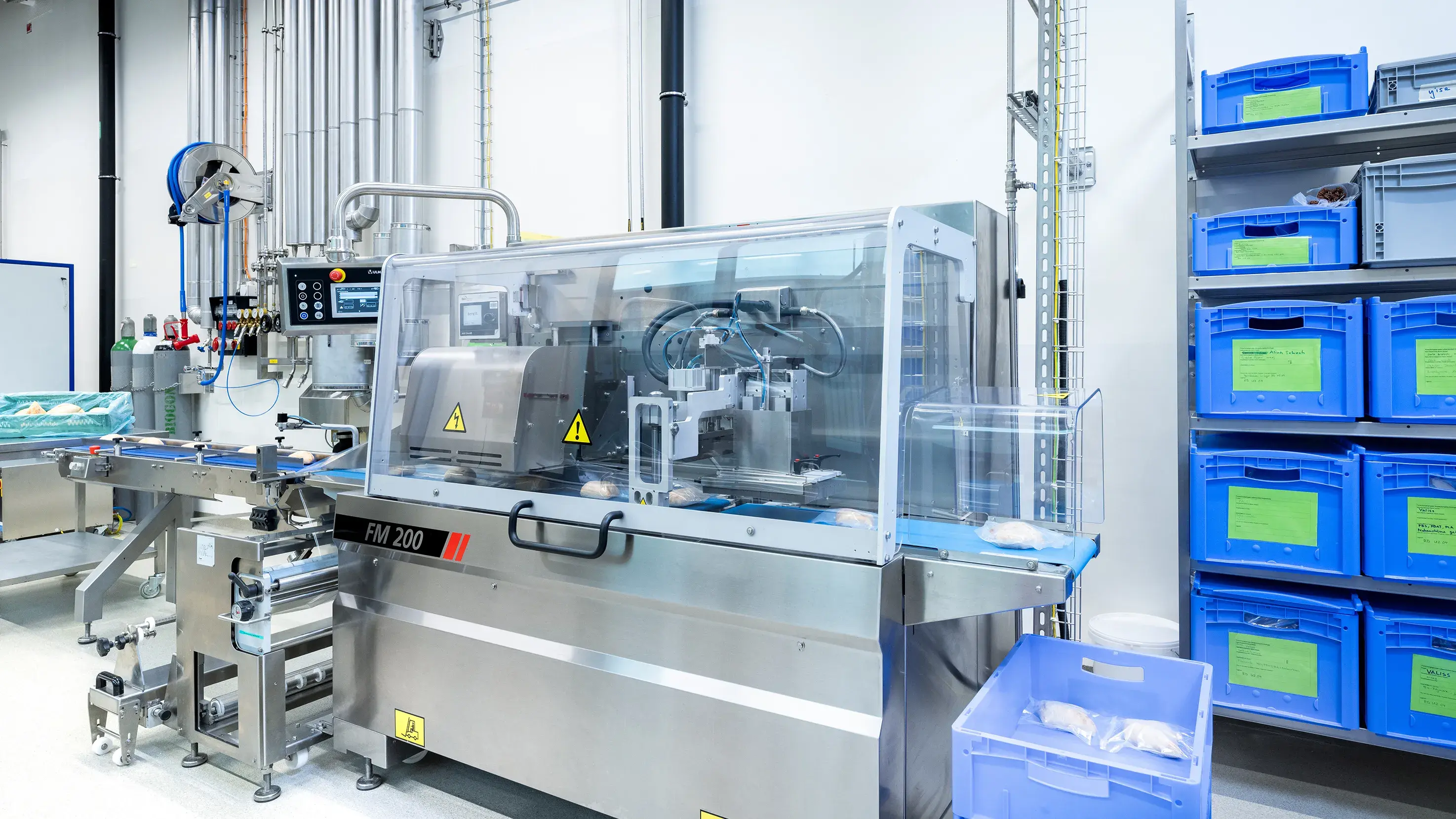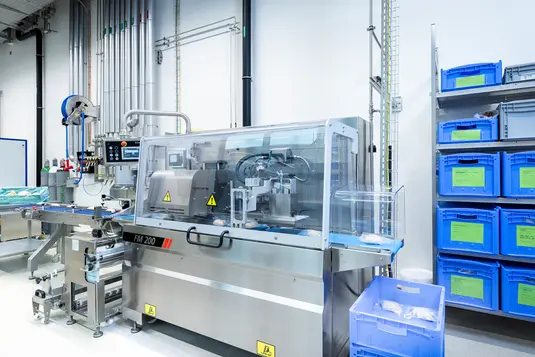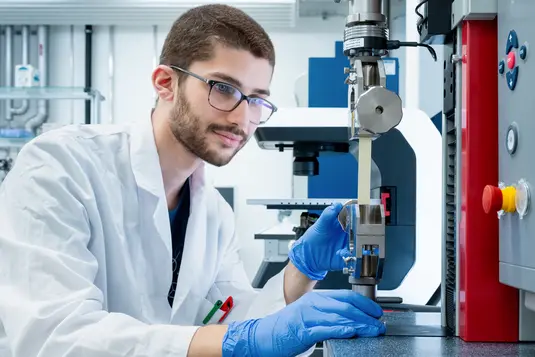Food Packaging Research Group
The main goal of the Food Packaging Research Group is to develop innovative and sustainable packaging materials and processes to ensure that food is of high quality and safe.
Packaging plays an important role in maintaining food quality from production to consumption. Two important trends are currently driving the development of packaging materials: the trend in consumer preferences for minimally processed food without preservatives; and the demand for sustainable packaging products. In order to meet these trends, we develop innovative and sustainable packaging materials and solutions and optimise packaging processes - in close cooperation with the food industry and packaging manufacturers.
Sustainable packaging materials

Developing sustainable packaging materials:
- Bio-based materials
- Biodegradable materials
- Packaging materials from by-products of the food and agricultural industries
Sustainable packaging design

Development of sustainable packaging concepts that include aspects such as
- Sustainable materials
- Sustainable design
- Circular economy
- consumer behaviour
Innovative packaging materials

Development of innovative packaging materials:
- Active packaging: Oxygen scavengers, antimicrobial films, antioxidant releasers
- Novel packaging materials
- High barrier films
Optimization of Food Packaging Processes

The optimisation of food packaging processes includes:
- applying existing processes to new applications
- optimising packaging processes to better preserve the quality of food
- developing new packaging processes for existing or new products
In our packaging technology centre, we have machines for the production of packaging materials and a variety of packaging machines for packaging different foodstuffs.
- Climatic cabinets enable materials and foodstuffs to be stored under controlled conditions.
- In the laboratory, we can both determine the quality of the packaged products and characterise the packaging materials.
Furthermore, we have access to the infrastructure(PDF 232,3 KB) of the research groups Food Technology, Food Microbiology, Food Biotechnology, Food Process Design, Food Chemistry and Food Perception.
EU/CH and China Food Contact Material World: Differences and Alignments
Learn about EU and Chinese food contact regulations in an interactive training course covering similarities and differences in legislation, migration issues, testing methods, risk assessment and sustainability approaches. The course is aimed at employees from food and packaging companies, regulatory authorities and anyone interested in the topic.
⇒ Course details and application
Publications
-
Rüegg, Nadine; Cornu, Jeannette; Yildirim, Selçuk,
2014.
Optimierung von modifizierten Atmosphärenverpackungen von Cherry Tomaten mittels Mikroperforation [poster].
In:
7. GDL-Kongress Lebensmitteltechnologie, Rodgau, Deutschland, 16.-18. Oktober 2014.
-
Yildirim, Selçuk; Hasler, Bettina; Renke, Nadine,
2014.
Critical interactions between palladium based oxygen scavenger and the food.
In:
Food and Agriculture COST Action FA0904 International Conference, Rome, Italy, 28-29 March 2014.
-
Yildirim, Selçuk; Rüegg, Nadine,
2014.
In:
Sek, M.A.; Rouillard, V.; Bigger, S.W., eds.,
Responsible packaging for a global market : proceedings of the 19th IAPRI World Conference on Packaging, Melbourne, Australia, 15 - 18 June 2014.
19th IAPRI World Conference on Packaging, Melbourne, Australia, 15-18 June 2014.
Melbourne:
Victoria University.
-
Rüegg, Nadine; Kinner, Mathias; Kündig, René; Kleinert, Michael; Yildirim, Selçuk,
2014.
Cereal Technology (Getreidetechnologie).
2014(2), pp. 66-75.
-
Brombach, Christine; Miescher, Susanna; Yildirim, Selçuk,
2014.
OPTIFEL : altersgerechte Verpackungen.
Transfer.
2014(3), pp. 8.
Available from: https://doi.org/10.21256/zhaw-5888
Project collaboration
We offer various opportunities for project collaboration. Projects can take the form of research projects, services or student work such as term papers, bachelor's or master's theses.
For project enquiries please contact Prof. Dr. Selcuk Yildirim





